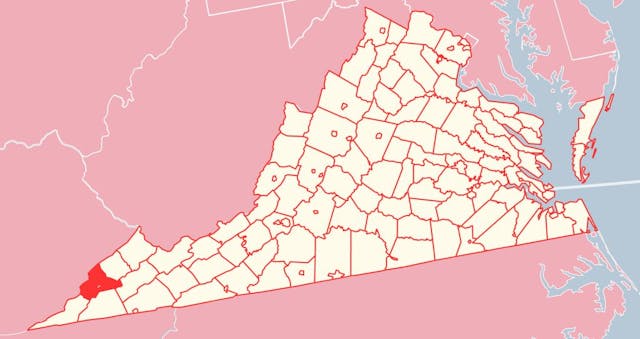Rehabs in Wise
Wise County is a province located in the US state of Virginia. According to the 2020 US census, the population is 36,130. The administrative center of the province is Wise.
According to a recent federal governmental analysis, Virginia is among the top ten states with its quality of healthcare. However, drug and alcohol addiction is a major issue in this region.
Just like the whole US, Virginia has seen a rise in overdose fatalities. According to a survey by the Virginia Department of Health, in 2021 the rate of drug overdose fatalities increased by 15%. Moreover, due to opioids, there is also a rise in the number of emergency department admissions.
So, we may conclude that because of the pandemic the situation worsened, as some clinics were closed and residents have no access to professional care. However, rehabs in Wise County are trying to provide quality addiction treatment services and heal society.
Our article is to cover available recovery plans of these centers and reveal which program best suits your healing goals.
Available Treatment Options
Like the whole US, Wise county is also widely affected by the drug epidemic. So, the state bodies and Wise County rehabs try to fight against this epidemic. They also provide expert medical and emotional assistance to their residents.
The rehab services include detox, outpatient and inpatient therapies, aftercare, etc. These are internationally tested addiction treatment plans that have already been approved for their effectiveness. So, let's look through the details of each service and find one that best covers your individual needs.
Detox
The detox aims to remove toxins from the addict’s body. At the same time, the expert staff of the detox center is to assist patients in managing occurred withdrawal symptoms. So it is the first essential step before enrolling in an intensive rehab program.
In brief, detox provides medical stability to address the underlying causes of your dependency. It also prepares your mind and body for further therapies.
The average length of detox is 6 days. For a complete course person should pay $1,000 to $1,500.
Inpatient Care
Patients of inpatient rehab have to live at the hub for the whole period of treatment. The length of their stay depends on their unique condition. The major factors that influence it are the type of the issue, the existence of co-occurring mental health disorders, and the former enrollment of the individual in rehab.
So, the average length of stay is 30 days, but there are also longer programs (60-days, 90 days, or even longer). Inpatient care offers a 12-step curriculum, group and individual counseling, sports, yoga, and more. Family counseling and support are also a part of it.
The cost of this hub starts from $6,000 for a monthly course. However, depending on the provided amenities its cost may reach $60,000.
Outpatient Plan
Outpatient programs include substance abuse treatment sessions as well as support groups. The patients don’t have to stay at the clinic. So, they have a chance to attend these sessions with flexible scheduling. This flexibility also allows them to undertake their usual daily activities and live at home.
There are various formats of outpatient care available in the US. However, all of them put an emphasis on counseling, education, and support networks.
The average price of a 3-month program is $5,000. The price depends on how often the person visits the center and how much time spends there. So it can reach $10,000 and even more.
Aftercare
Aftercare allows people with various addictions to share their personal experiences and support those with the same health issues. Moreover, the special aftercare groups provide emotional guidance and help for addicted people when cravings strike.
The famous support groups include Narcotics (NA) and Alcoholics (AA) Anonymous and Smart groups.
Payment
The type of amenities provided by a rehab affects the total cost of recovery. People typically use their health insurance plans to pay for rehab expenses. There are the following types of insurance accepted in this region: private, Medicaid/Medicare, State-funded plans, and Military.
If a person doesn’t have any of these insurance plans, he/she can look for a free or low-cost center. There are hubs that offer financial support. Medical loans, fundraising, scholarships, and grants are also good choices to cover expenses.

